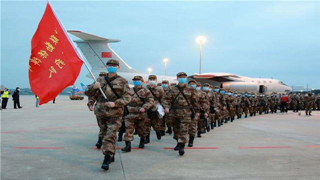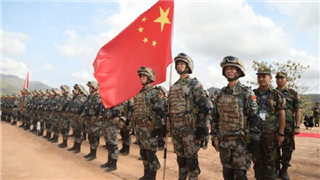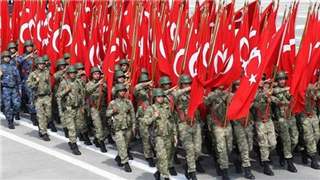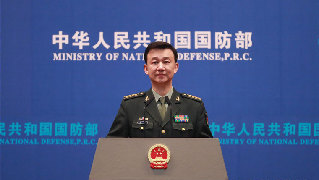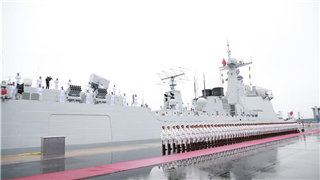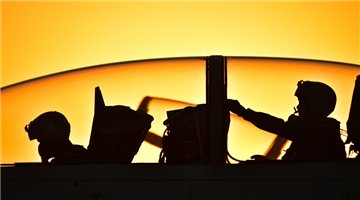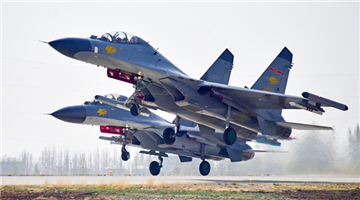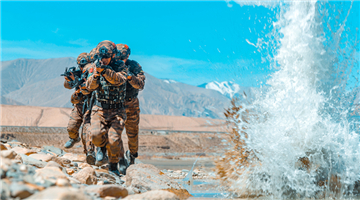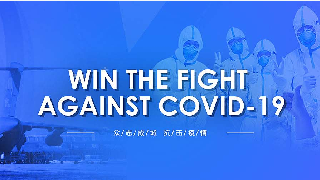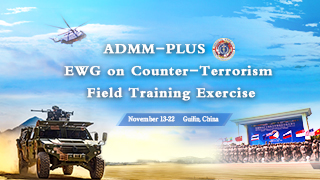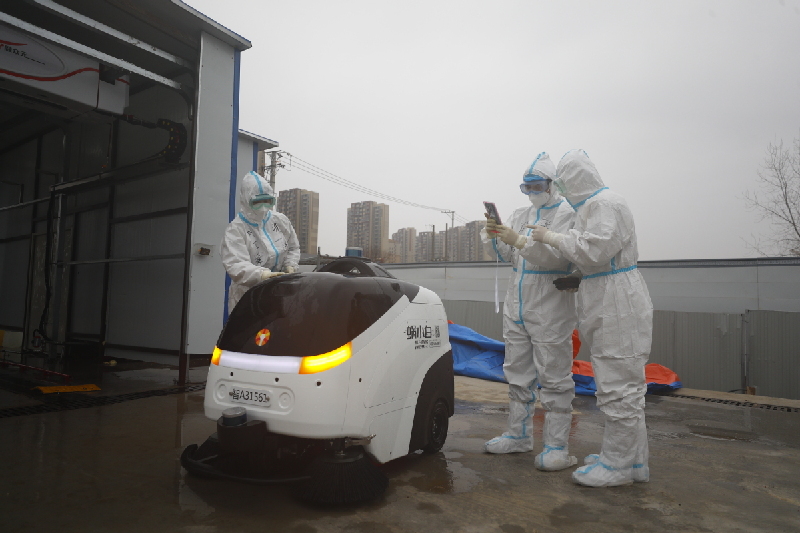
As Wuhan, the city hardest hit by the novel coronavirus outbreak, begins to return to normal, military medical teams remain on duty at the Huoshenshan Hospital to help medics treating the most serious cases.
With the number of patients dwindling in Hubei's provincial capital, many nonlocal medical assistance teams have returned home. However, soldiers from the People's Liberation Army, who are responsible for disinfection work at the hospital, have remained to protect medical workers.
Zhang Pengfei, a senior master sergeant with the Chemical Defense Corps of the PLA Joint Logistics Support Force, leads a 10-strong team that disinfects the hospital buildings and vehicles.
"Any bacteria left anywhere in the hospital can be life-threatening to my comrades-in-arms, who are treating patients with the virus. We must ensure that there is no risk of infection in the environment," he said.
Zhang's team works throughout the day to ensure that every corner of the hospital is clean and every patient is safe.
He said the team regularly cleans and disinfects about 600 meters of corridors and more than 300 vehicles, such as ambulances.
"We use machines such as cleaning and disinfecting robots to do the first round of work, then manually disinfect everything, especially contact spots such as door handles and light switches," he said.
"The more we clean, the safer the medical workers are."
Having been a member of the corps for three years, Zhang has taken part in disaster relief work, but none of his team had undertaken disinfection work before, so he had to teach each member individually.
Mu Weijian said he has learned a lot as a member of the team. "At the beginning, I felt fearful and uncomfortable doing the disinfection work. Now, I'm confident enough to go into the mortuary alone to disinfect the place," he said.
"As a soldier, when the lives of the people are threatened, I must step forward and be brave, even when 'facing mountains of swords and seas of flames'," he added, using a famous Chinese saying.
Chen Xiaolong said that after joining the team, he discovered that the work was not as easy as it first appeared. On Feb 10, when the hospital received 421 new patients, the team was almost overwhelmed.
"The weather was not good that day. We went back and forth disinfecting the designated zones, with sweat soaking our uniforms. As we cooled down after the shift, we began to tremble as the protective suits could not keep us warm," he said.
"We worked from the morning until 2 am. By the end, our legs were weak and our shoulders bore purple marks, showing where we had carried 30 kilograms of equipment each.
Zhang made sure hot water was ready for the team members when they returned to their dormitory so they could make drinks and wash.
